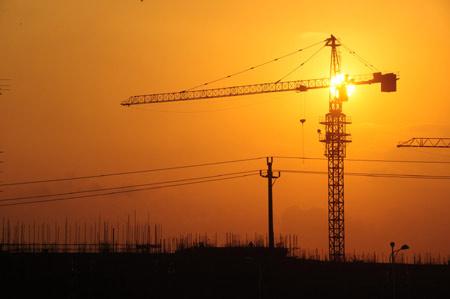 Residential prices in 86 cities rise from October, according to data compiled by SouFun.[Photo/China Daily]
Residential prices in 86 cities rise from October, according to data compiled by SouFun.[Photo/China Daily]Second monthly rise in a row comes despite interest rate hike
SHANGHAI - China's home prices rose 0.8 percent in November, gaining for a second month even as the central bank raised interest rate for the first time since 2007, said SouFun Holdings Ltd, the nation's biggest real estate website owner.
Residential prices in 86 cities rose from October, based on 100 locations tracked by SouFun, with average home values nationwide climbing to 8,487 yuan ($1,273) a square meter. The gain followed a 0.7 percent increase in October's home prices from September, SouFun said.
China this year suspended mortgages for third-home purchases and pledged to speed up trials of property taxes to restrain foreign capital and cool real estate prices. The central bank raised interest rates in October and increased the reserve-ratio requirements for banks twice last month.
"It showed that home prices are stabilizing amid the government's tightening," said Huang Yu, a Beijing-based researcher at SouFun.
"The home-price gains were mild compared with the high inflation rate as other products are rising rapidly."
China's inflation accelerated to the fastest pace in two years in October as consumer prices rose 4.4 percent from a year earlier, more than the 4 percent median forecast in a Bloomberg News survey of 28 economists.
Zibo, a mid-sized city in eastern China, posted a 2.5 percent gain from October, the biggest advance in the country, SouFun said.
Shanghai's prices climbed 0.4 percent, while those in Beijing added 0.1 percent, it said.
SouFun started compiling the monthly home data in July and usually releases them before national statistics bureau figures. Government numbers for November are due in mid-December.
The statistics bureau said last month that home prices rose 8.6 percent in October from last year, the slowest growth in 10 months. Residential values increased 0.2 percent from September based on prices in 70 cities, it said.
China's property policies next year will emphasize price stability and increasing supply, said Wang Tao, a Beijing-based economist for UBS AG on Wednesday.
"Stabilizing property prices in large cities is very important for the government, which will keep a tightening bias on property demand, including possibly a pilot program on property tax and higher mortgage rates," Wang said.
Bloomberg News


